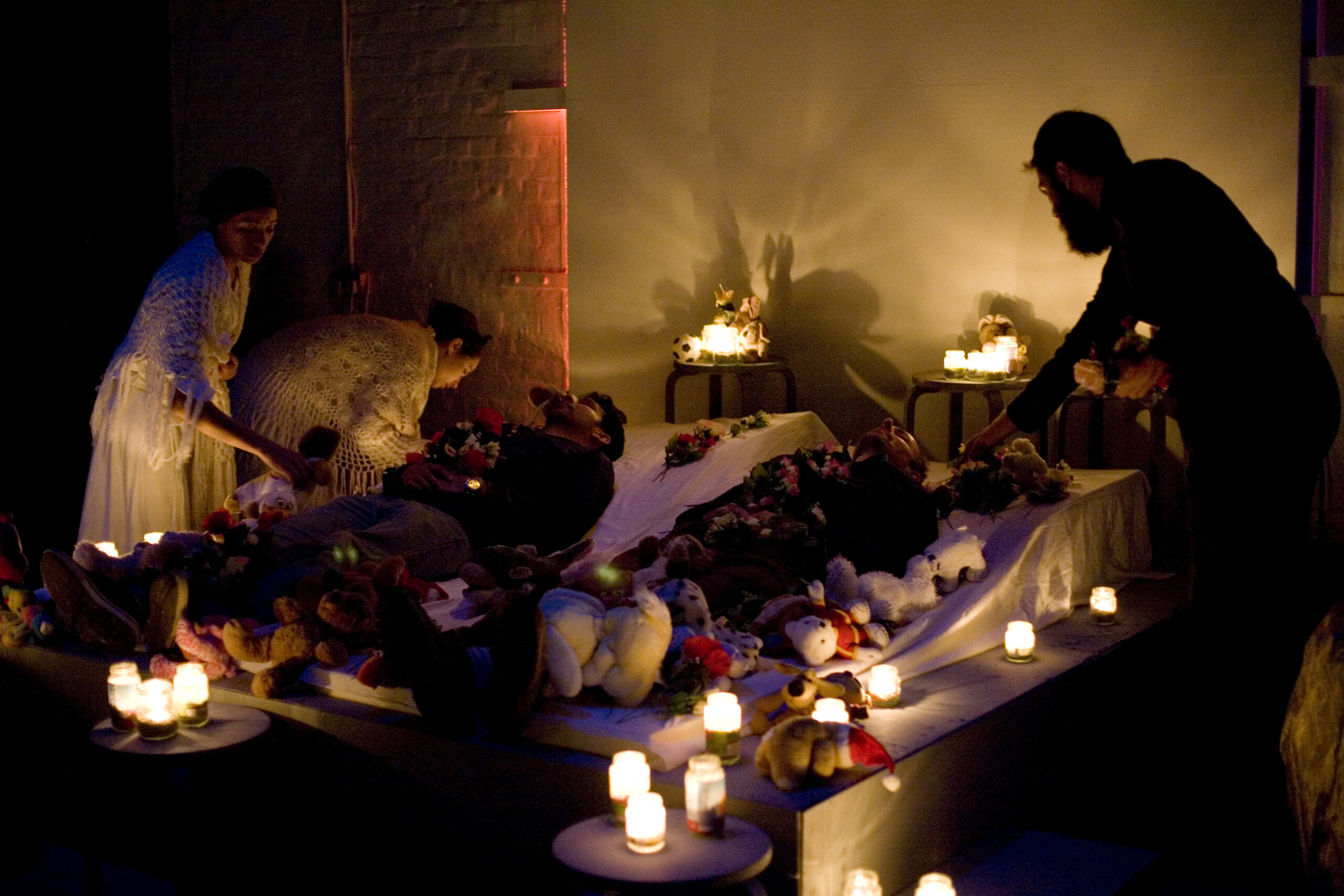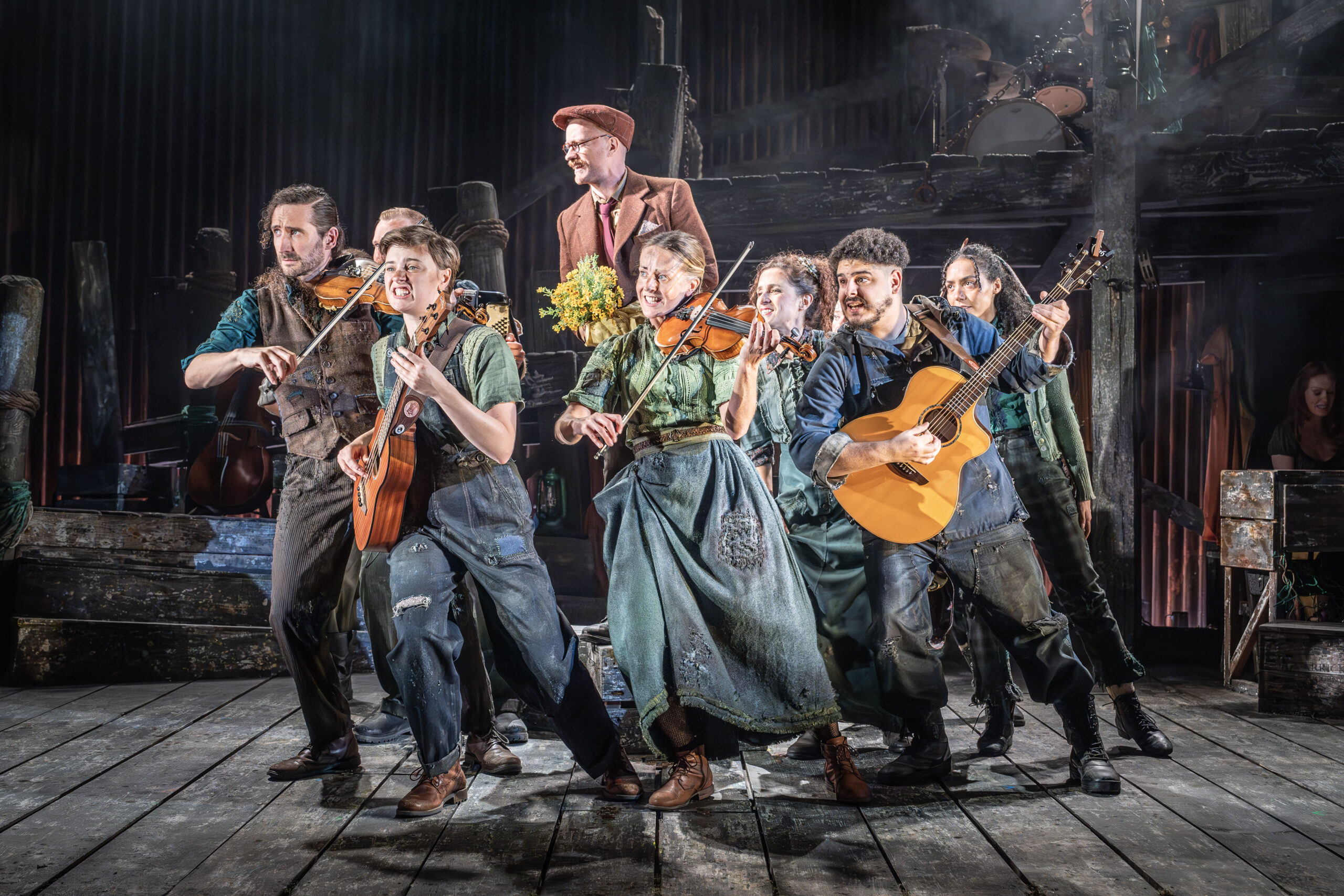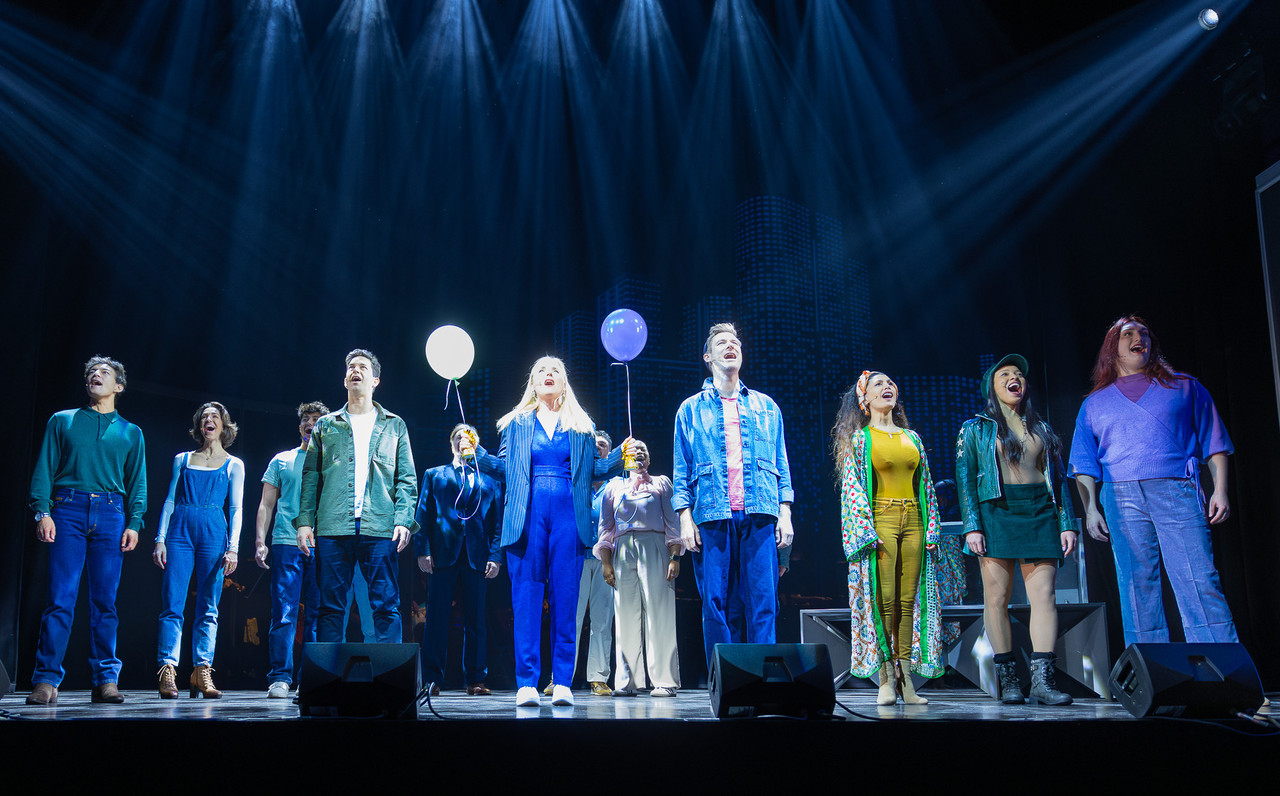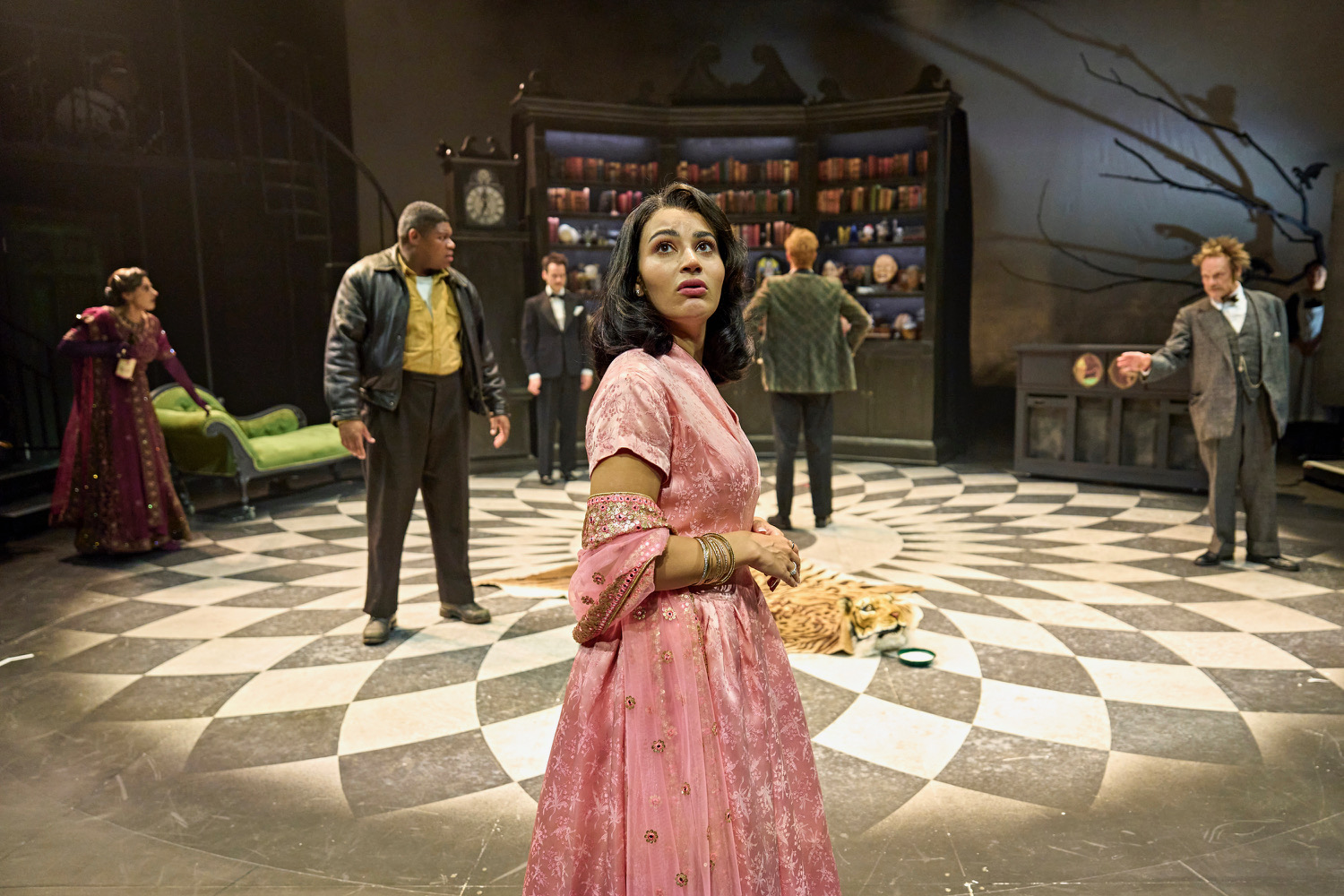An overview of what is meant by ‘immersive theatre’ and what you should know about it as an actor before considering this type of work.
Theatre is a truly unique experience that can suspend disbelief, entertain thousands and connect us to our humanity. This is taken one step further by immersive theatre, which eliminates the fourth wall and creates an intimate setting for audiences and actors to connect through the story. It’s a vulnerable setting for actors and audiences that engages all the senses in a way that’s deeply moving and very exciting.
However, not all ‘immersives’ are created equally. As they continue to evolve from their radical beginnings, it’s a good idea to understand what immersive theatre is and whether you want to add it to your acting CV.
What is Immersive Theatre?
Although immersive theatre dates all the way back to ancient Rome, Punchdrunk is often seen to be the founders of the modern-day art form. They’ve wowed audiences across the world since Sleep No More (a film noir adaptation of Shakespeare’s Macbeth in 2011) with their multi-sensory and detailed environments. They even have a permanent base in the capital, proving that this form of theatre is here to stay.
However, ‘immersive’ is becoming an increasingly complex term. As an actor in an immersive project, you could be entertaining thousands of families at Disney’s theme parks, diners at Faulty Towers: The Dining Experience, or fellow ‘residents’ in Secret Cinema’s: Stranger Things – you name it, it’s probably out there. All this variety offers many alternatives to traditional theatre, which can reinvigorate storytelling and attract new audiences.
However, this rapid growth has led to the capitalist commercialisation of many immersive experiences, which arguably have little in common with immersive performance. ZU-UK, often cited as pioneers of immersive theatre through widely acclaimed productions like Hotel Medea, point out these shortcomings in their Post-Immersive Manifesto:
“[Immersive theatre has become] detached from its radical origins. Its appropriation by advertisers, events promoters and PR consultants has rendered it shorthand for selling tickets to elaborate and expensive fancy dress parties…”
Nonetheless, many immersives have shifted the paradigm from its origins. One of the ways it’s doing this is by incorporating virtual reality (VR) and augmented reality (AR) technologies. These technologies are still in their infancy, but they continue to attract excitement from creators and audiences, with reports predicting that immersive VR and AR companies will give a £62.5bn boost to the UK economy and create over 400,000 new jobs by 2030; this may become increasingly viable and necessary work as an actor.
Working as an Actor in Immersive Theatre
Performers are incredibly vulnerable when face-to-face with an audience. The close proximity and novelty of these shows can make it almost impossible to predict every safeguarding issue, which is crucial when surveys from the theatre unions like BECTU (2023) identified anti-social behaviour from audiences increased post-Pandemic.
Having performed in a number of immersives myself, I’ve experienced burnout from performing physically and emotionally demanding scenes on repeat while on inadequate breaks and paid below Equity wages. Zero-hour contracts and no sick pay are also commonplace. We all need to work, but to feel safe, valued and fulfilled is crucial to a long-lasting career in acting.
Arguably, these issues have arisen due to immersive theatre’s sudden growth into the mainstream before organisations like the Immersive Experience Network (designed to support creators of new immersive work) and Equity’s Immersive Network (ensuring work is professionally made and professionally paid) were established. Fortunately, Equity has now increased its activity in implementing these changes across the sector.
Is Immersive Theatre for You?
Post-Pandemic, I felt a wave of relief that one of my first jobs was in immersive theatre. Though challenging, connecting with fellow actors and audiences in such intimate settings was exactly what my soul needed. Not only did I get to be part of an everlasting familial bond, but to witness an audience of seemingly mature adults play and interact with the intensity of children was a truly rewarding and unforgettable experience.
In truth, deciding whether you want to work in immersive theatre depends on the production, and it depends on you. Even if you’ve performed in this style of theatre or heard of the company before, always do your research and consider asking the following before you accept:
- What does the role entail (working hours, breaks, audience sizes and proximity)?
- What are the safeguarding practices?
- Is it an Equity contract? If not, what kind of contract will it be?
- If the show’s already up and running, can they provide you with a ticket? This benefits them, too, as you can hit the ground running and meet the actors after to glean more insights.
- How long is the rehearsal process? Again, it is very useful to know if the show is up and running.
- How big is the cast?
- Is there a stage manager? Incredibly, some don’t have this.
- Is there holiday/sick pay?
These questions, whether asked directly or through your agent, will give you a better idea of what to expect on the job and if there is a lack of clarity or outright refusal to answer, then this may not be the production to share your talents with.
Whatever you decide, increased involvement from unions like Equity should establish better pay and working conditions across all entertainment genres. So, whether exploring uncharted waters or a well-treaded path, we can focus on what we do best: storytelling.
Good luck!
Take a look at our website for more tips and advice for theatre and musical theatre work.
 Leda Douglas is an actor and writer based in London. Her work credits include: ‘Shudder’ (Soho Theatre), ‘Home’ (Southwark Playhouse), ‘Nuclear Future’ (touring), ‘The Time Machine’ (immersive) and more recently Alice in Creation Theatre’s award-winning digital play, ‘Alice: A Virtual Theme Park’. She is now developing her first short film with Gatton Films.
Leda Douglas is an actor and writer based in London. Her work credits include: ‘Shudder’ (Soho Theatre), ‘Home’ (Southwark Playhouse), ‘Nuclear Future’ (touring), ‘The Time Machine’ (immersive) and more recently Alice in Creation Theatre’s award-winning digital play, ‘Alice: A Virtual Theme Park’. She is now developing her first short film with Gatton Films.
Headshot credit: Ori Jones


















